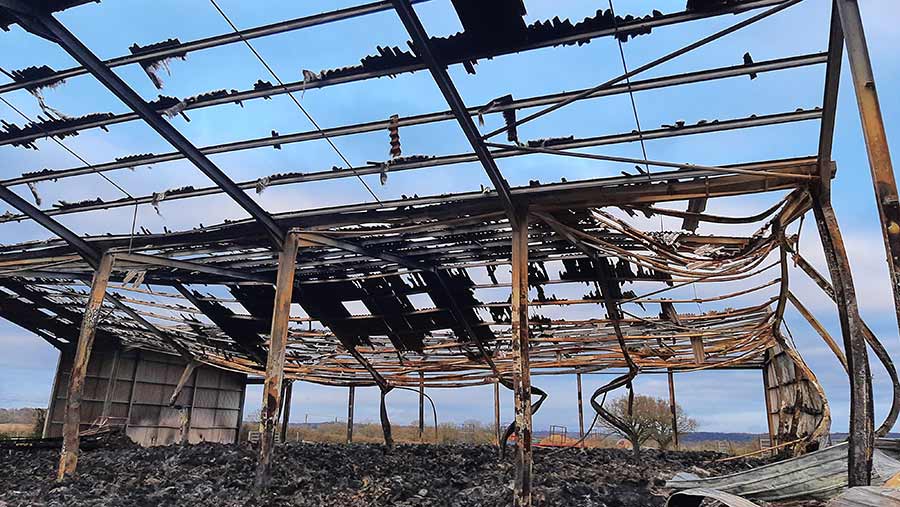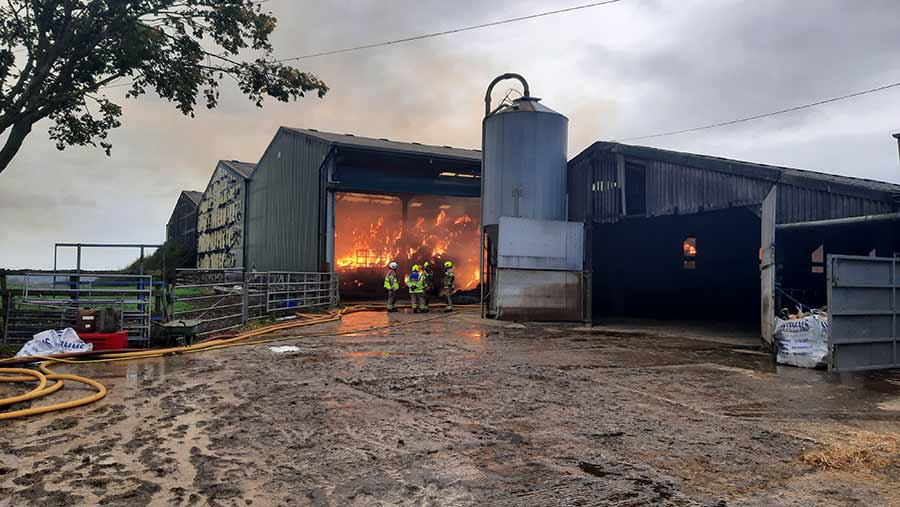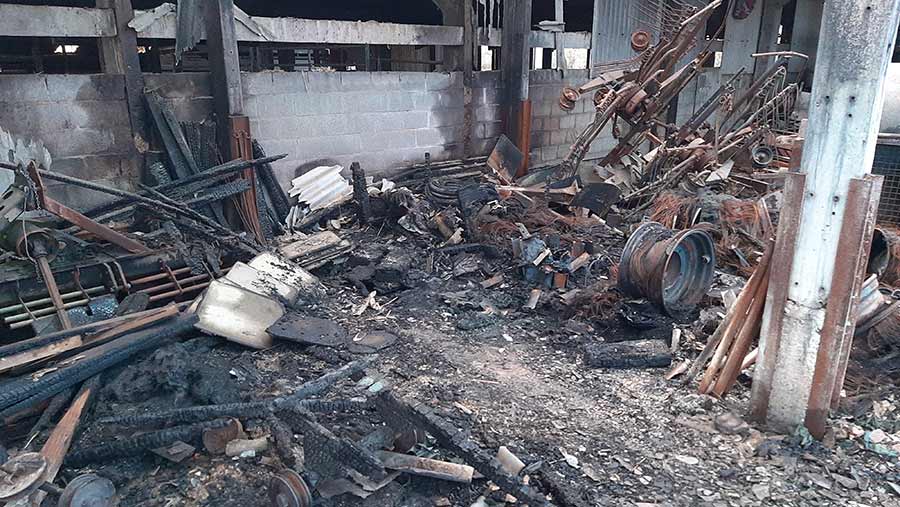Teenage arsonist handed £61 court bill for £1m barn fire
 © Thames Valley Police
© Thames Valley Police A teenage boy who started a barn fire that destroyed £1m of hay and machinery was ordered to pay £61.
The 16-year-old, who cannot be named for legal reasons, pleaded guilty to arson and was sentenced at Oxford Youth Court on 1 February.
Magistrates heard that the boy had been playing with two friends at Acre Hill Farm, just off Cuckoo Lane, Eynsham, on 24 October 2021.
It is believed he started the blaze by setting fire to strips of hay with a lighter.
See also: Why on-farm water supply is critical to contain fires

© Thames Valley Police
At its height, about 40 firefighters from six fire stations tackled the fire, which engulfed 600t of hay and destroyed machinery inside the barn.
Cattle had to be evacuated and the incident caused significant disruption in the area. No one was injured and all livestock survived.
The teenager, who was aged 15 at the time of the attack, apologised to the court for his “stupid and reckless” actions.
The farm owner, who is aged in his 70s, was insured for his losses through NFU Mutual.

© Thames Valley Police
But the incident is said to have caused him major inconvenience as he needed to buy in feed and struggled to find specialist machinery to replace the lost vehicles.
The boy was handed a four-month youth referral order, committing him to discuss the offence with a youth offending team, and rehabilitation activities. He was also told to pay £61 court costs.
Investigating officer PC Cory Fastnedge, from Thames Valley Police, said the fire caused “untold damage” to the farm building and the victim suffered “immeasurable loss” because of the boy’s reckless actions.
The officer said the defendant was “very fortunate” not to have received a more significant sentence. But he added: “We respect the judgment and hope the boy can learn from his reckless actions and ensure there is no repeat in the future.”
Five fire safety tips from rural insurer
NFU Mutual has urged farmers to be prepared and have fire control plans in place after the cost of farm fires reached £95.6m in 2021.
Electrical faults were the biggest known cause of blazes, but large-scale farm arson attacks shot up from £4.7m in 2020 to £8.4m in 2021.
NFU Mutual rural affairs specialist Hannah Binns urged every farmer to be on their guard and improve security to help prevent their business going up in smoke.
The insurer has issued these five fire safety tips:
- Have a plan in place Put people at the heart of your fire plan and ensure everyone on site knows what to do in the event of a fire.
- Don’t mess with electrics Electrical faults are a major cause of fire, and electric shock can cause death or severe injury. Always use a qualified and competent electrician for work and inspections.
- Suppress the risk Suppression systems are a major game-changer for the industry and play a critical role in detecting, containing and extinguishing fires.
- Keep on top of your housekeeping Good housekeeping is absolutely essential to ensure materials and machinery are stored correctly and to eliminate dust and debris.
- Control hot work Welding, cutting or grinding equipment, along with blow lamps and blow torches, can produce sparks that can turn into fires if they hit a combustible material. If work can’t be done outside, ensure you are in a clear, open area and far away from combustible materials.
If a fire breaks out
- Call the fire and rescue service immediately
- Make sure everyone is made aware of the fire, and evacuate people to a safe location as per your emergency plan
- Only attempt to fight the fire if it is safe to do so and use the correct and maintained extinguishers
- Prepare to evacuate livestock if the fire spreads, but only if safe to do so
- Prepare to use farm machinery to assist the fire and rescue service, but only on their instruction
- Ensure you can direct emergency services to the exact location of the fire – you can download the what3words app, which pinpoints specific 3x3m locations. Send someone to meet and direct the fire service to the fire
- Ensure the farm entrance is clearly signed and access kept clear to allow firefighters access
